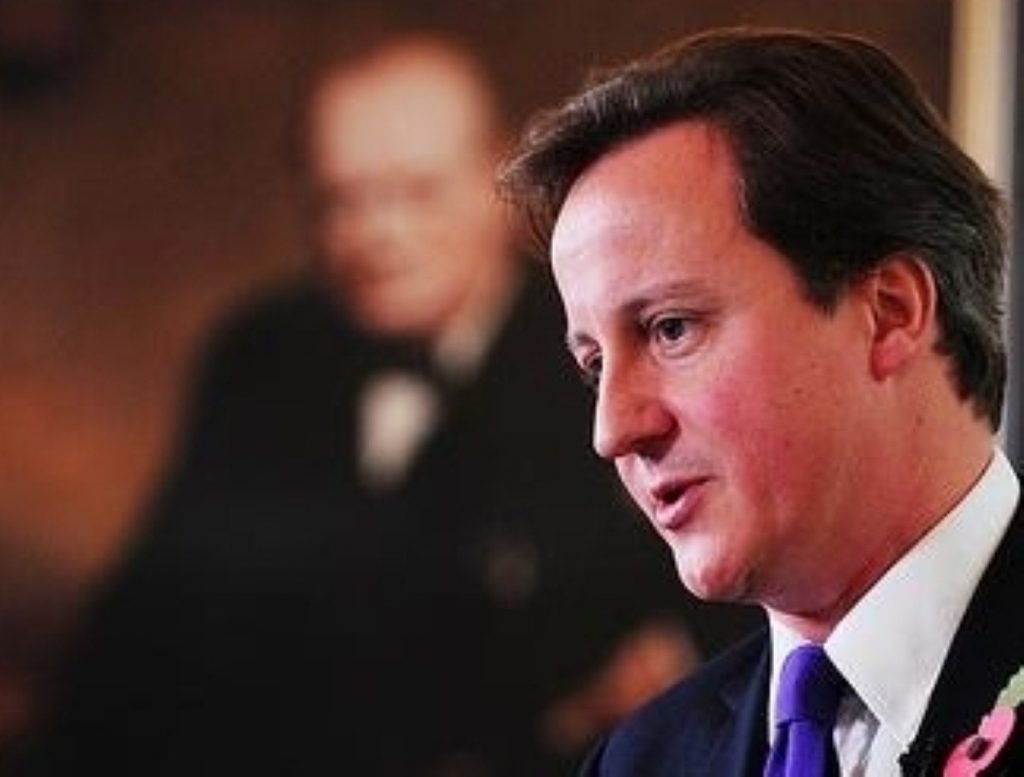Angry Cameron lashes out after forced Hunt appearance
David Cameron has lashed out in the Commons after being forced to return to Westminster to answer questions about the Jeremy Hunt row.
The decision to drag the prime minister away from a speech in Milton Keynes to answer Labour's urgent question reflected a new low in the relationship between the Conservatives and Speaker John Bercow, who made the decision.
"Weak and wrong," Mr Cameron shouted at Labour leader Ed Miliband after his question.
"If you're going to make these accusations, get your facts right before you come here."
The prime minister then turned on Margaret Hodge, chairman of the public accounts committee, in a remarkable attack which saw him say that she "allows her committee to drift".
He then accused shadow immigration minister Chris Bryant of making false allegations about his meetings with News International employees, saying: "A man of honour would stand up and apologise."
He told octogenarian Labour MP Dennis Skinner: "The honourable gentleman has the right at any time take his pension and I advise him to do so."
Later, Labour MP Toby Perkins said the prime minister's comments showed him to be guilty of "disgusting" age discrimination.
Throughout the session Mr Hunt sat to the prime minister's left, looking visibly nervous and uncomfortable.
Mr Miliband cited three breaches of the ministerial code by Mr Hunt when his office engaged in communications with News Corp during its bid for BSkyB.
Mr Hunt's special adviser, Adam Smith, already lost his job over the emails, but Mr Cameron said the culture secretary should have a chance to offer testimony to the Leveson inquiry before any other action is taken.
"We all know the special adviser had to go to protect the culture secretary and the culture secretary had to stay to protect the prime minister," Mr Miliband said.
"Lord Justice Leveson is not the arbiter of the ministerial code. Lord Justice Leveson is doing his job. It's time the prime minister did his."
Labour is accusing Mr Hunt of three specific breaches of the ministerial code: failing to take responsibility for the behaviour of a social adviser, failing to provide "accurate and truthful" information to parliament and giving advance details of a parliamentary statement to News Corp before the Commons had been informed.
Mr Bercow may have been convinced of the need for Mr Cameron to return because there are no PMQs on Wednesday due to a short parliamentary break.
He may also have been affected by the long line of respected senior figures who accepted Labour's argument on the need for Sir Alex Allan, independent adviser on ministerial interests, to conduct an inquiry.
Sir John Bourn, the first independent adviser on the code, told the Daily Telegraph it would be "reasonable and logical" to have an investigation under the ministerial code immediately.
Lord Butler of Brockwell, a former cabinet secretary, told BBC Radio Five Live there was “no doubt" the ministerial code had been breached.
Tory public administration committee chair Bernard Jenkin also supported the calls for an inquiry.
Mr Cameron offered the media secretary a qualified defence yesterday, saying that "as things stand" he did not believe he had broken the ministerial code.
"If information arises that paints a different picture from the one we've heard, then obviously I know my responsibilities towards the ministerial code and I would act," the prime minister told BBC1's The Andrew Marr Show yesterday.
"The question is should you set up a parallel inquiry that should duplicate what Leveson is doing? I don't think that would be right."
Mr Cameron was also forced to admit he talked about News Corp's bid for BSkyB during a Christmas dinner at the house of Rebekah Brooks, former News of the World editor, after James Murdoch revealed the conversation to the Leveson inquiry.
"What I recall saying, although I can't remember every detail of the conversation, is saying something like: clearly that was unacceptable, it was embarrassing for the government, and to be clear from now on this whole issue would be dealt with impartially, properly, in the correct way, but obviously I had nothing to do with it, I excused myself from it," he said.
Asked if he regretted the meeting, the prime minister said: "Clearly, after all that's been written and said about it, yes, of course one might do things differently."





-01.png)